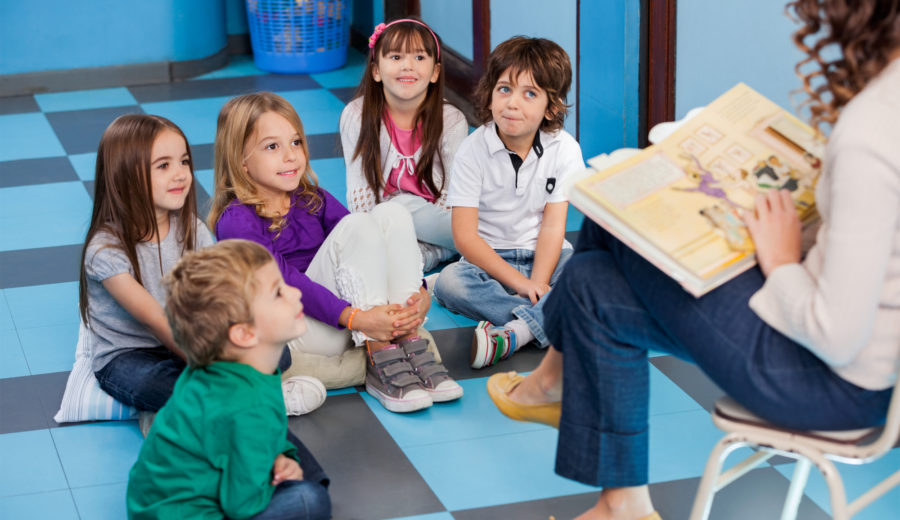[vc_row][vc_column][vc_column_text]In today’s world, we’re constantly surrounded by and engaged in technology. Parents and teens alike are glued to their smartphones, while children are regularly given tablets to play with. These gadgets have even made their way into some highly reputable preschool classrooms and top notch day care centers.
But this shift isn’t necessarily beneficial for your child. In fact, early exposure to screens could actually do more harm than good in certain cases.
Choosing child care is an important decision for any parent: approximately 87% of all five-year-olds in the U.S. were enrolled in preprimary programs in 2015, so it’s likely that your family will soon be on the hunt for a good preschool program or a top notch day care in your area. When you start talking to trusted child care professionals and deciding where to send your child for day care, preschool, or pre-kindergarten, think twice before sending them to a facility that has integrated the use of iPads or tablets into their regular routine.
Here are a few reasons why you might want to steer clear of this technology for now.
[gap size=”30px”]
-
There’s no evidence they help children learn
As of yet, there has been no large-scale scientific study that assesses iPads and other tablets as long-term learning tools. In addition, the small-scale studies that have been performed have produced mixed results: while iPad use may help some people learn, they may affect others negatively.
And while students are commonly very enthusiastic about using iPads in educational settings, there’s no definitive positive or negative link between that usage and academic performance. Essentially, there’s too much that’s unknown about how this technology impacts a child’s learning.
Whether you’re enrolling your child in preschool or a top notch day care center, you’ll want their activities to be structured around proven methods rather than what’s popular and exciting.
[gap size=”30px”] -
Tablets can be a distraction
There are certainly some good things that iPads can offer in specific settings. For instance, gadgets like these can be used as a motivational tool to get kids more excited about the material.
But one of the only consistent findings in studies that have been performed in this area is that tablets can serve as potential distractions. Overall, they’re seen as a means of entertainment rather than education. And the fact that tablets can be connected to the Internet can open a whole other can of worms.
Tablet users will often have to multitask, especially when these devices are used in educational settings. Unfortunately, multitasking has been known to hinder academic performance due to distraction.
In any kind of childcare or preprimary program, you’ll want your child to be focused, to listen to directions, and to be in the best possible position to learn.
[gap size=”30px”] -
Tablet reading is no replacement for traditional methods
Some parents may be thankful that their child is reading, no matter whether they do it on a screen or in a book. But many experts assert that reading text on a screen is a very different experience from reading it on paper.
Reading a book is much more continuous, slow, and linear, while reading onscreen involves a lot of searching for key passages and skimming. Absorption of the material is not nearly as deep when we read on screen instead of from a book.
Research has also found that it’s more difficult to follow a narrative when reading on screen; with a book, it’s easier to become transported and is a more comfortable experience overall.
While encouraging your child to read from an early age is highly important, it will be to their benefit to make sure that reading comes from traditional sources, rather than technological ones.
[gap size=”30px”]
If you’re struggling with choosing the right preschool or day care center for your child, there are many factors that you need to take into consideration. But while a cutting-edge environment may appeal to your desires, it may not be what’s best for your child. Remember that traditional isn’t bad — and in fact, it may be better for early development.[/vc_column_text][/vc_column][/vc_row]




